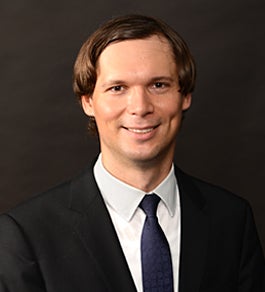

Assistant Professor Sergey M. Kozlov
Faculty & Department
Education
Doctor of Philosophy, University of Barcelona, Spain
Bachelor of Science (Physics) with Honours, Novosibirsk State University, Russian Federation
Bio
Sergey M. Kozlov is an Assistant Professor at the National University of Singapore where he leads the Computational Nanocatalysis group, which performs multi-disciplinary research at the crossroads of chemical engineering, theoretical chemistry, and nanoscience. His current studies focus on the development of advanced computational approaches for simulations of multicomponent nanostructured materials applied in catalysis and electrochemistry. He was awarded a fellowship by the National Research Foundation of Singapore for studies of metal-oxide interactions in catalysis.
Contact Information
Sergey was awarded a fellowship by the National Research Foundation of Singapore for studies of metal-oxide interactions in catalysis.
My research focuses on advancing the theoretical understanding of the chemistry of nanostructured materials and applies this knowledge to design advanced heterogeneous catalysts with tailored nanostructuring. In my group, we use density functional calculations to characterize the electronic and geometric structure of catalysts and to provide insight into reaction mechanisms at the level of detail that cannot be achieved experimentally. In our work, we develop new computational tools and approaches that allow us to design and analyze the unique properties of catalysts with the increasingly sophisticated nanostructure. In our studies, we take advantage of physical and chemical interactions in nanomaterials to design better catalysts for green energy technologies. Our research helps Singapore’s goal to reduce its CO2 emissions by 50% by 2050 and facilitates the world’s transition to a CO2-neutral economy. Our research is synergetic to the activities of many experimental groups participating in Low Carbon Energy Research Program, NUS Center for Hydrogen Innovations and A*STAR institutes with whom we extensively collaborate on the development of new catalysts.
My Mentoring Style
How would you describe your mentoring style in terms of freedom given to your students?

Selecting Research Topics?
How do you guide your PhD students in selecting research topics?

Setbacks / Challenges
How do you handle setbacks or challenges faced by your PhD students?

Feedback
How do you give feedback on your students’ thesis drafts and progress?

Consultation Frequency
How often do you typically meet your PhD students one-on-one for consultation?

Research Group Meetings
How often do you typically hold lab meetings where your PhD students present their research work to the class?

In my group, we work in small teams typically composed of one Ph.D. student and one postdoctoral research fellows. These teams are formed in ad-hoc fashion depending on the expertise required for each project. In this way, the student could collaborate with and learn from several postdocs over the course of their Ph.D. studies, which exposes the student to various reserach perspectives and work styles.

